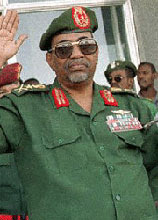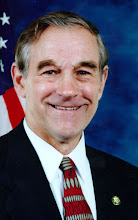While writing this post, I was unable to get the lyrics to Bob Marley's renowned song
One Love out of my head...it just seemed so fitting, yet so far off (Okay, I was actually playing it on my iTunes).
The position that Iraqi Prime Minister Nouri Al-Maliki and the Iraqi government are currently in is quite an interesting one. Just think, recently, on a trip to Iran, Maliki visited the tomb of Ayatollah Khomeini, while not long before that, he was over here in the United States visiting with the families of U.S. service members getting ready to deploy to an Iraq, something the Iranians are vehemently opposed to--and make clear on a daily basis. I often wonder to myself why this question is not asked more often. Sure, it does come up, but seriously, look at these two pictures below.

Here, PM Maliki is meeting with President Bush, with the flags of Iraq and the United States proudly displayed across from one another. The Iraqi government has reiterated its support for American troops to remain in Iraq to counter the insurgency, rebuild the country, and set it on the right path towards democracy. American currently has over 150,000 troops in Iraq, and even with an upcoming presidential election, that number is unlikely to be greatly reduced anytime soon (even if Big O becomes the next president, I think he'll even acknowledge the importance of staying in Iraq)...and this is at the request of a democratically elected government headed by the Islamic Da'wa Party, of which PM Maliki is a member of.
And who is one of Dawa's biggest supporters: Iran.

That is right--Iran. Here, you can see Maliki and Iranian President Mahmoud Ahmadinejad holding hands in brotherly affection. I couldn't imagine that Ahmadinejad is not well aware of the fact that his Iraqi brother has stood by the side of President George W. Bush, whom Ahmadinejad routinely attacks, and vise-versa. Indeed, Iraq is in quite a precarious position between what the United States has labeled as "The Axis of Evil" and what the Revolutionaries in Iran have labeled as "The Great Satan".
On his recent trip to Iraq, Ahmadinejad stated that it was a good thing to see Iraq free of Saddam Hussein...okay, so who does he think removed Saddam Hussein? It certainly wasn't Muqtada Al-Sadr, or any other Iraqi nationalist figure with connections to Tehran. In fact, this is often tied into the debate over whether or not the United States should have gone into Iraq...some critics of President Bush believe he empowered the Iranians by removing Saddam Hussein, and there is no argument that Iran's influence in the region has grown without Saddam's regime on its western border. Yet for some reason, relations between the United States and Iran could not be at a lower point, never mind that both of them have
benefited from the removal of Saddam's Hussein's regime in Iraq, as well as the ousting of the Taliban in Afghanistan, where the United States and Iran actually worked together! Much like the Government of Iraq, Afghan President Hamid Karzai is also a strong supporter of
the positive influence he says is coming from Iran and the United States.
So here's what I am wondering. First off, why won't the American and Iranian government face the reality that is inconvenient when the two nations trade barbs, accusations, and threats at each other? Second, why can't Maliki and Karzai bring this issue up, whether they are walking down a red carpet outside the White House or at a receiving ceremony in Tehran? If Iran and the United States truly see Iraq and Afghanistan as strategic allies, then perhaps it is time they trust them to play a much needed role as mediator...a positive role at mediation amongst allies could be the difference between more violence, conflict and war, and a partnership that could prove to make the world a better place in the end.
The United States and Iran will not be able to settle their differences on their own...the leaders of both countries have gone out of their way to make it as difficult as possible, unfortunately. Just look at
the recent breakdown of U.S.-Iranian talks on Iraqi security. However, this appeal I am making is to the allies of both countries. A mention of this at a press conference by Al-Maliki or Karzai (whether they be with Bush, the next U.S. President, Ahmadinejad, or Khamenei) would certainly put the issue to the forefront, because it is a reality that cannot be ignored while Iran and the United States battle it out on many fronts to achieve power on the world stage.














